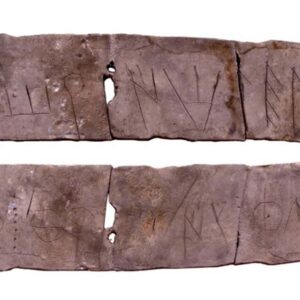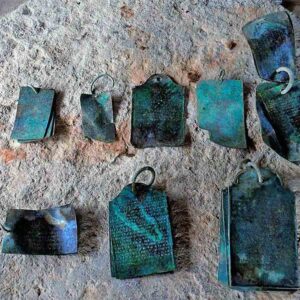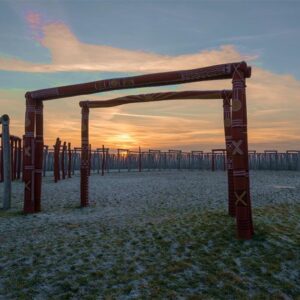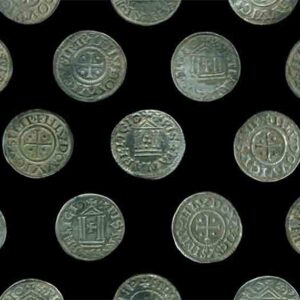Up to date
23 February, 2022 – 13:58
ashley cowie
4 Historic Lead Ingots Rewrite Cyprus’ Function in Bronze Age Commerce
- Learn Later
It’s all modified within the historical historical past of Cyprus, because of the invention by archaeologists that the copper-rich island was a big dealer in the course of the fall of empires in 1200 BC. The keys to those new revelations have been 4 lead ingots found throughout the cargo of a shipwreck off the coast of Caesarea, an historical port on the Mediterranean coast of present-day Israel, simply south of Haifa.
A brand new paper, revealed within the Journal of Archaeological Science: Reports, says the ingots have been initially recovered by archaeological divers in 1987 and 1989 amongst 22 Bronze Age shipwrecks. At the moment, the mysterious etchings on the faces of the ingots have been indecipherable. Now, nevertheless, they’re learn as Cypro-Minoan , a language utilized by historical Cypriots in the course of the thirteenth and twelfth century BC. Having accomplished a examine of the ingots origins a group of Israeli scientists say “a shift” is required within the understanding of Cyprus’s geopolitical position in late Bronze Age buying and selling.
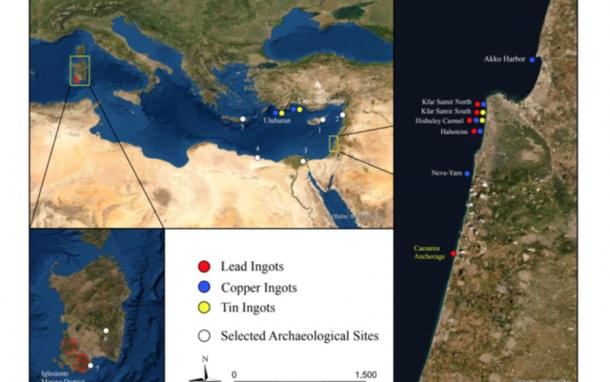
Map of the Mediterranean exhibiting the findspots of copper, tin and lead ingots. (D.M. Finn / Journal of Archaeological Science: Reports)
The Case of the 4 Mysterious Lead Ingots
The chapter title reads just like the identify of a Sherlock Holmes investigation, and it’s because the brand new analysis undertaking and examine adopted the same format. A report in Times of Israel explains that the co-author of the brand new examine, Prof. Naama Yahalom-Mack of the Hebrew College’s Institute of Archaeology, stated the analysis undertaking was “a little bit of a detective story.”
- Into the Drink! Roman Shipwreck Stocked with Amphorae Discovered Close to Cyprus
- Multicultural Historic Treasure Hoard Found In Cyprus Tombs
Step one was to decipher the curious markings on the lead ingots. As soon as this was achieved, it was straightforward to find the origin of the metallic. Isotopic evaluation decided the lead was mined in Sardinia, which Dr. Yahalom-Mack says was an surprising end result. Sardinia is situated past the western Mediterranean, which in line with the researcher is method past the Cypriots’ common route of commerce: Egypt, the Levant, Anatolia and the Aegean.
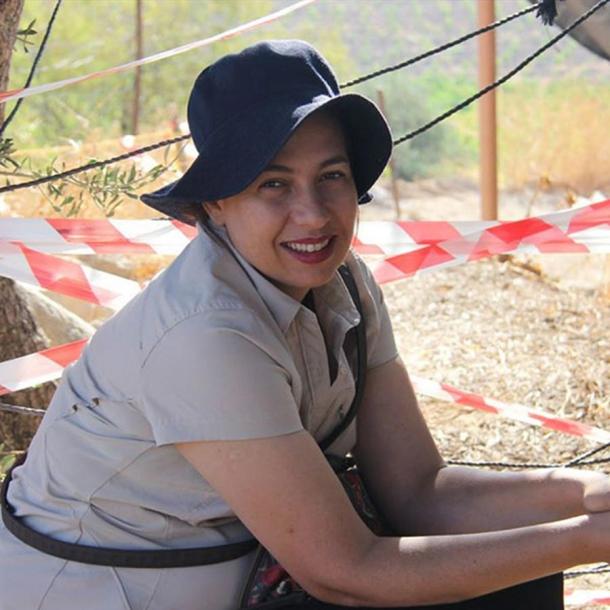
Prof. Naama Yahalom-Mack, of the Hebrew College’s Institute of Archaeology, stated the analysis undertaking was “a little bit of a detective story.” (Hebrew University)
Switching from Passive to Energetic
Cyprus has at all times been thought-about a “passive participant” within the historical world of worldwide commerce and warfare. Archaeologists had at all times interpreted the island’s historical cultures as being solely copper producers, whereas others traded the metallic and loved the income, promoting value-added merchandise to overseas markets. Nevertheless, the brand new analysis describes Cyprus as “a small however agile nation with each formal and casual commerce ties.”
The lead ingots present that Cyprus was not solely producing copper, however was exchanging and buying and selling it for different metals, though Cyprus and Sardinia are 2,500 kilometres (1,550 miles) distant from each other. Moreover, this new info suggests Cyprus may need “helped fill the facility vacuum that occurred with the collapse of entrenched empires round 1200 BC.”
This era noticed widespread social degradation together with the cultural collapse of the Mycenaean kingdoms, the Kassites in Babylonia, the Hittite Empire in Anatolia and the Levant and the New Kingdom of Egypt. However Cyprus, it appears, thrived at the moment.

3D scans of the Late Bronze Age lead ingots found off the coast of Caesarea, an historical port on the Mediterranean coast of present-day Israel, simply south of Haifa. (Avshalom Karasik / Israel Antiquities Authority)
Who Had been the Historic Sardinian Copper Merchants, Precisely?
Dr. Yahalom-Mack says that the brand new analysis demonstrates that together with the formal buying and selling recorded in historical texts, there was additionally casual commerce. This implies fleets of smaller service provider ships managed by entrepreneurs had cast “in depth diplomatic connections, exchanging presents, buying and selling uncooked supplies, significantly metals.” To have achieved this, the ocean captains will need to have tagged onto the formal buying and selling programs, “hitching a journey on it,” the researcher added.
- A Dozen Mediterranean Shipwrecks Reveal World Commerce
- Scientists Monitor Silver Commerce From Trojan Conflict to Roman Republic
Whereas it’s recognized that historical Cypriots produced tons of of tons of copper, and that they provided it to cultures all around the Mediterranean, the massive query stays unanswered: who precisely was doing all of the copper buying and selling? Dr. Yahalom-Mack defined that these new discoveries have allowed Cyprus to be represented in archaeology as a way more “energetic participant.” Any longer historians and archaeologists will be capable to concentrate on understanding “the mechanisms” of the copper commerce, together with figuring out the merchants. In conclusion, the scientist defined that the group has proof to counsel the thriller copper elites have been the Canaanites. Watch this house.
High picture: The 4 lead ingots found in a shipwreck off the coast of Israel. Supply: Ehud Galili / University of Haifa’s Institute for Maritime Studies
By Ashley Cowie


